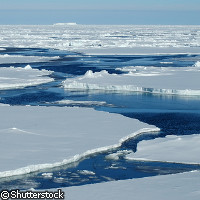Media must highlight climate change, say researchers
The British general public is not taking climate change seriously, partly because the media does not publicise it as much as it should, say researchers at the UK's University of Liverpool. Dr Neil Gavin of the university's School of Politics and Communication Studies believes that the media needs to highlight the seriousness of climate change and that its limited coverage of the subject sends out a message to the public that it is not an important topic that needs decisive action. 'Our research suggests that the media is not treating these issues with the seriousness that scientists would say they deserve,' said Dr Gavin. 'The research company Ipsos-MORI found that 50% of people think the jury is still out on the causes of global warming. The limited amount of media coverage of climate change - which tends to be restricted to the broadsheets - means that this statistic is unlikely to alter in the short term. 'Climate change, therefore, may not be high enough on the media agenda to stimulate the sort of public concern that prompts concerted political action. The media may well continue to focus its attention on health, the economy or crime, thereby drawing public attention away from the issue of climate change.' According to Dr Gavin, 'Drawing attention away from climate change is more likely when resources are stretched, government popularity is on the wane, or where more pressing, non-climate-related issues force the government to direct expenditure or invest its political capital and energy elsewhere.' In spite of the media's lack of serious coverage, important research results on climate change are being published all the time. The latest findings from the International Polar Year (IPY) 2007-2008, a global research effort focused on the Antarctic and Arctic, provide new evidence of the effects of global warming in these remote regions. The results, published in the IPY document The State of Polar Research, show that snow and ice are declining in both polar regions, contributing to the rise of sea levels. The research shows that global warming in the Antarctic is much more widespread than previously thought and the rate of ice loss is increasing. IPY researchers on expeditions in the Arctic have recorded an unprecedented rate of sea-ice drift which is leading to the migration of some species of fish, birds and mammals. 'The International Polar Year 2007-2008 came at a crossroads for the planet's future,' said Michel Jarraud, Secretary General of the World Meteorological Organization. 'The new evidence resulting from polar research will strengthen the scientific basis on which we will build future actions.'
Countries
United Kingdom



